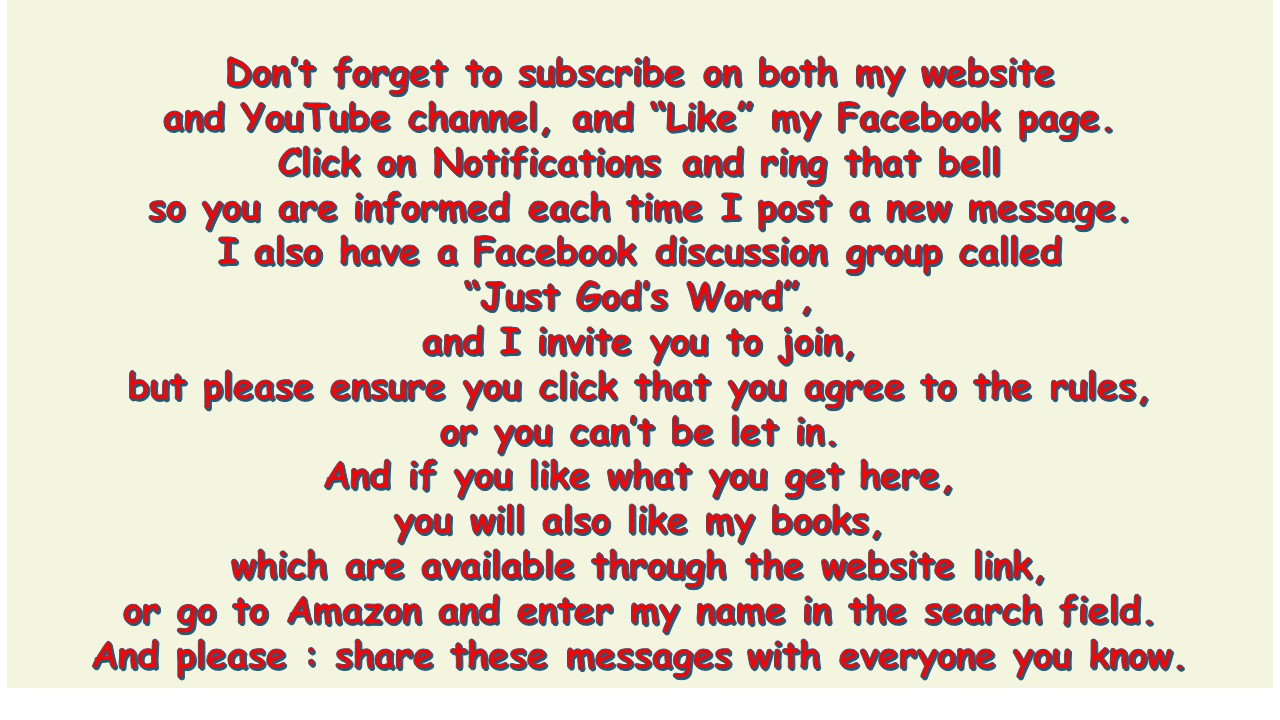What could I possibly do that would, in any way, ever lessen the importance of, or cheapen, the powerful name of the Messiah, Yeshua?
Maybe that happens when we use it so often and so automatically that it carries no weight, anymore?

If you prefer to watch a video, click on this link: Watch the video.
We were told that when we pray, if we pray in Yeshua’s name, then our prayers will be answered (John 14:13). But what happens if we constantly, blindly, and routinely say “In the name of Yeshua” over and over again, after every single thing we pray for? Doesn’t that become more rote than heartfelt?
Do you pray in his name all the time, for whatever reason, for whatever you want, whether or not it even is something you need? I have heard people give thanks to God and then do so in the name of the Messiah: what’s with that? If we are giving thanks to God, we are not asking for anything, right? So why use the power and majesty of Yeshua’s name just to say “Thanks”?
The name of the Messiah is powerful, but it’s not the word we use (Yeshua or Jesus) that has power: it is the renown and reputation of the one who that word identifies!
I try to be very careful, or I should say respectful, when asking in Yeshua’s name. There are many times I ask God for simple things, such as s good night’s sleep, or good weather because I have plans for outside activities, or other, miniscule and unimportant things. When I do that, I usually do not ask in Yeshua’s name because (and this is just how I feel) I don’t want to misuse the power of that name for “silly” things. If it rains when I wanted to go for a bike ride, well, then, I ride my bike on another day. God’s will is more important than my puny desire for nice weather, and if it rains then someone, somewhere, probably needed it more than I needed to have sore muscles the next day.
What I am saying is that the name of the Messiah carries power, and power should be respected and used sparingly. We have enough examples in the Bible to teach us that when we worship without the proper attitude God will not accept it; I believe that using the name of the Messiah in prayer all the time, routinely, mindlessly, and unfaithfully will have no meaning to God.
In fact, I think to use Yeshua’s name when asking for everything and anything is insulting to the awesomeness of his name.
Should we ask for all things all the time using a name that has such power and majesty, or do we use that name sparingly, carefully, and respectfully, only when asking for what we truly need for ourselves or someone else?
What do you think?
That’s it for today, so l’hitraot and Baruch HaShem?

